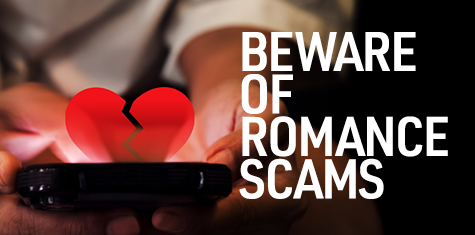
February 6, 2025 • News and Promotions|Security

During this special time of year, we celebrate love. Valentine's Day is a reminder to take a moment to share messages of affection with our partners, family and friends.
At MoneyGram, we are grateful for the opportunity to help loved ones stay connected, even across great distances.
However, it’s important to remain alert, as scammers prey on other's desire for connection during this season through romance scams.
A romance scam occurs when a person pretends to seek a romantic relationship with another person to exploit them emotionally and financially. These scams are common online, with many scammers looking for victims on dating sites, social media or through wrong-number texts.
In the US, 64,003 romance scams were reported in 2023, totaling a loss of $1.14 billion. The median loss of a romance scam victim is $2,000, the highest of any imposter scam.*
Red flags to look for when dating online
1. Avoiding video calls or meeting in person
2. Giving inconsistent or unrealistic personal details
3. Asking for money for travel, emergencies or investments
4. Moving communication to private messaging apps
5. Using stolen or manipulated photos
How to keep yourself safe from fraudsters
It's easy to get swept up in the excitement of a new love connection. Here are some tips that can help protect you from online scams:
Ways MoneyGram protects you from romance scams
We are here to help with fraud prevention guides, resources and support. To learn more about protecting yourself from fraud in the United States, visit our Consumer Protection page.
If you think your money transfer was sent to a scammer, please call MoneyGram Customer Service in the United States at 1-800-926-9400 or complete our report fraud form online.
*https://www.ftc.gov/business-guidance/blog/2024/02/love-stinks-when-scammer-involved